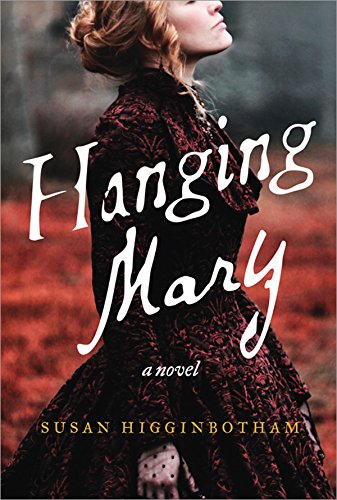Hanging Mary
In this novel we meet Mary Surratt, the only woman convicted and executed in connection with the Lincoln assassination. The widow of a drunkard, Mary remakes her life as a boarding house owner in Washington, DC. With her eldest son, Isaac, fighting for the Confederacy, Mary has concerns about her wayward son, Johnny, an impressionable and frequently unemployed young man who undertakes dubious schemes in support of the Southern cause. The other voice within this novel is that of Mrs. Surratt’s boarder, Nora Fitzpatrick, admirer of President Lincoln and loyal friend to the Surratt women. When Johnny Surratt brings home the charismatic actor John Wilkes Booth, Mary’s boarders are star-struck. Although concerned by Johnny’s mysterious associates, Mary agrees to look the other way and is eventually convinced to pass along cryptic messages, although she prefers to remain blissfully ignorant of the details. Higginbotham’s Mary is a supremely devout woman, a true “victim of circumstance” who pays dearly for her naiveté. She is tried in a military court, and despite several pleas for clemency, she becomes the first woman executed by the U.S. government.
Three things make this novel truly shine: the many historical details that paint a vivid picture of those days in 1865, and the facts that neither narrator is an eyewitness to the assassination and that Mary’s fate is revealed on the title page, yet the plot never suffers for it. Two notable women, with different perspectives, get a chance to tell their tales. Whether you believe Mary was an active accomplice or unwitting victim, the injustice she faces at the hands of those out for revenge won’t fail to grip you until the final pages, even as she approaches her own inevitable conclusion.










